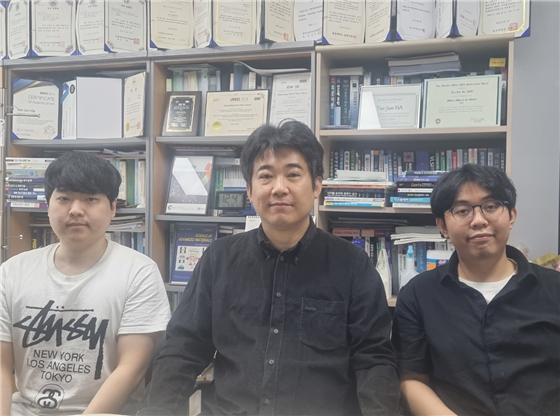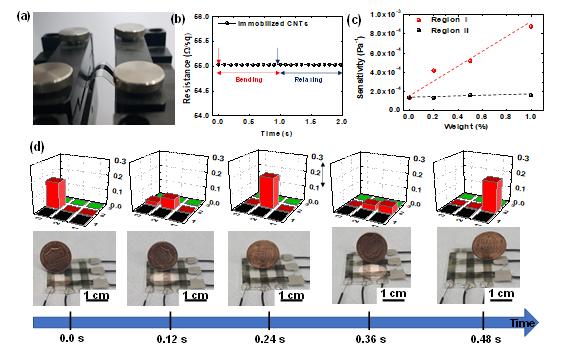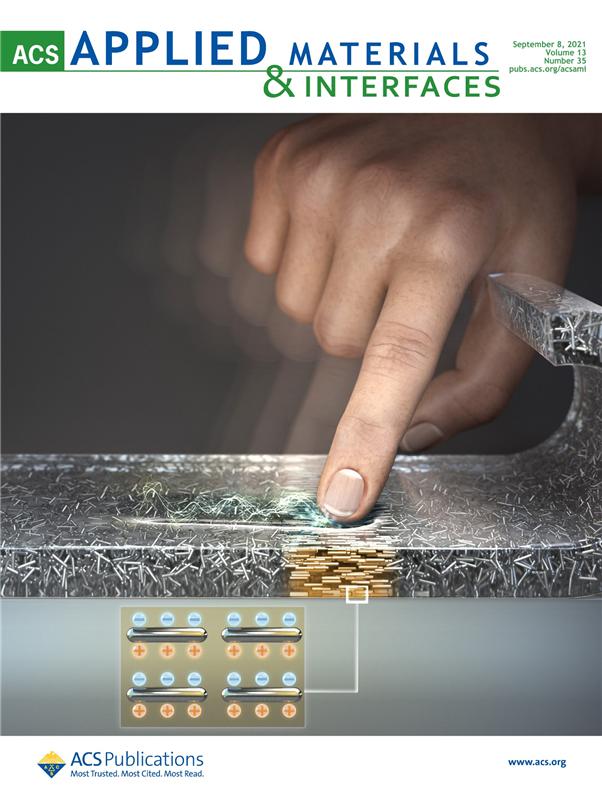Prof. Ha Tae-Jun (Department of Electronic Materials Engineering) Develops a Wearable Multi-Senso...
- admin
- 2021-11-18
- 2687
Prof. Ha Tae-Jun (Department of Electronic Materials Engineering) Develops a Wearable Multi-Sensor That Can Distinguish Ultra-Fine Pressure and Touch

Professor Tae-Jun Ha (Department of Electronics Engineering) at the university used a hybrid dielectric based on zinc oxide nanowire (ZnO nanowire) and polydimethylsiloxane (PDMS) as a sensing layer and used a carbon nanotube-based flexible electrode to distinguish ultra-fine pressure and touch. A wearable multi-sensor with capacitive type has been developed.
The results of this study were published in ACS applied materials & interfaces (IF: 9.229), the top international journal in the field of nanoscience and nanotechnology published by ACS publications. Wearable Pressure/Touch Sensors Based on Hybrid Dielectric Composites of Zinc Oxide Nanowires/Poly(dimethylsiloxane) and Flexible Electrodes of Immobilized Carbon Nanotube Random Networks were published in Supplementary Cover.
(Reference: https://doi.org/10.1021/acsami.1c10961)
The existing elastic body-based capacitive pressure sensor has a problem in that pressure resolution and sensitivity are lowered because the detection ability is determined according to a physical change in the dielectric layer located between the two electrodes. In addition, in the case of a metal layer used as an electrode in the sensor, there is a problem that the performance of the sensor is highly likely to be deteriorated by an external impact because it lacks elasticity and recovery power compared to the dielectric. In addition, existing capacitive pressure sensors, which depend on the elastic force of dielectrics, have a limitation in that they cannot distinguish and detect ultra-fine pressure and touch.
Therefore, this research team developed a high-sensitivity pressure sensor capable of real-time signal analysis even at a fine pressure of 20pa, paying attention to the fact that the effective permittivity of a dielectric can be effectively changed using the polarization phenomenon of zinc oxide nanowires. In addition, the operation stability of the wearable pressure sensor was secured by applying a flexible electrode based on carbon nanotube random networks that is not affected by electrical signals even by mechanical deformation. A single multi-sensor that can distinguish between ultra-fine pressure and touch stimulation in a capacitive manner has been developed.
Meanwhile, this research was carried out with the support of the National Research Foundation's mid-level research project hosted by the Ministry of Science, ICT and Future Planning as independent research by Kwangwoon University.

Performance analysis of pressure/touch multi-sensor based on ZnO NWs@PDMS dielectric and immobilized CNT flexible electrodes

Cover image published in ACS applied materials & interfaces (https://pubs.acs.org/toc/aamick/13/35)
?